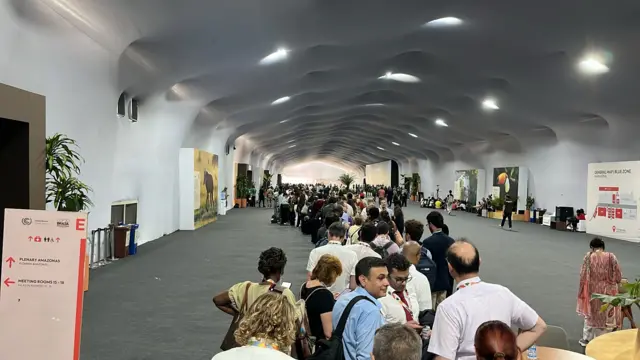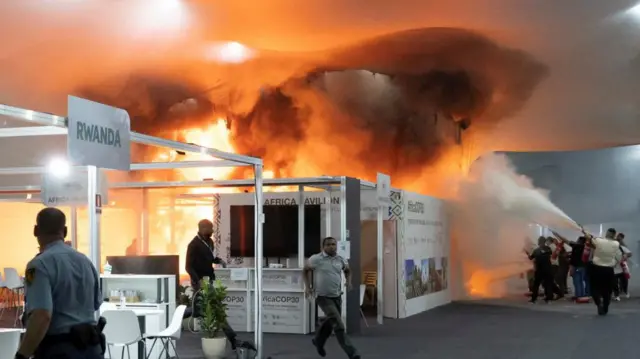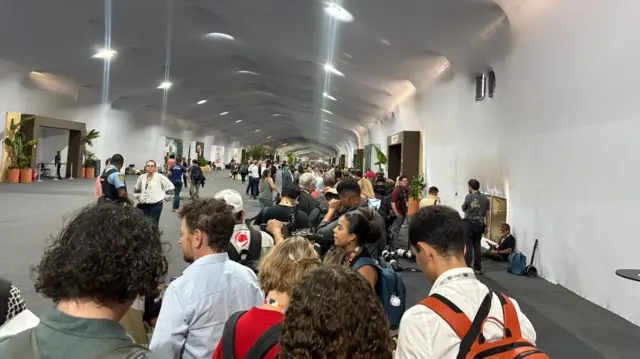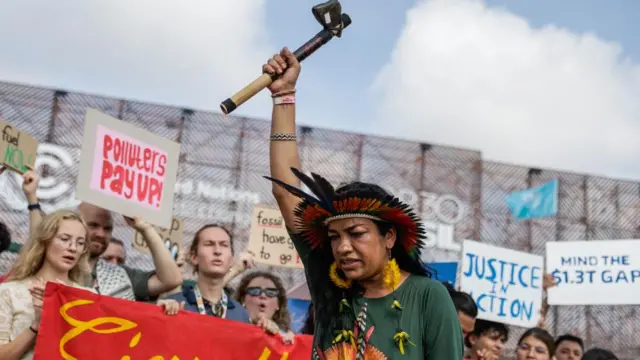New draft deal landspublished at 14:19 GMTBreaking
 Esme Stallard
Esme Stallard
Climate reporter
In the last few minutes a new draft deal on the key issues, that was negotiated through the night, has been published.
The countries are now going into the final meeting to decide if they want to pass it along with other commitments.
Countries had been at loggerheads over a decision to remove the words "fossil fuels" from previous iterations.
We are going through the new document and will bring you the latest on what it contains - stay with us.








